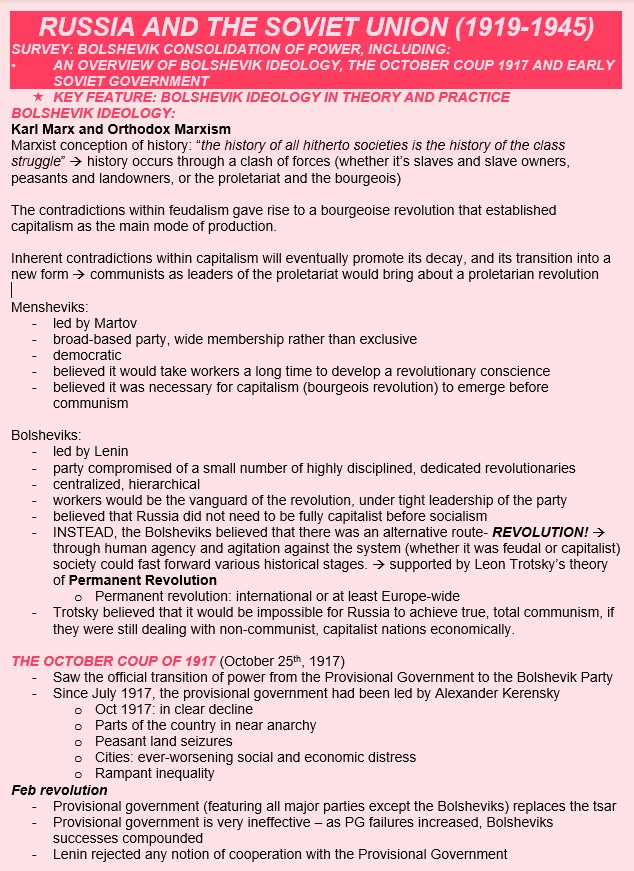Power Struggle and Emergence of Stalin as Leader – HSC Modern History
Summary:
The provided information pertains to the study of Russia and the Soviet Union from 1919 to 1945. It covers the Bolshevik consolidation of power, the Treaty of Brest-Litovsk, the Civil War, the New Economic Policy (NEP), and the power struggle following Lenin’s death.
The Bolshevik ideology is explored, focusing on Karl Marx and Orthodox Marxism. The October Coup of 1917 and the establishment of the early Soviet government are discussed. The Treaty of Brest-Litovsk, signed in 1918, is examined, along with the periods of War Communism (1918-1921) and the NEP.
The impact of the Bolshevik consolidation of power, including the creation of the USSR, is highlighted. The power struggle between Stalin, Trotsky, and other leading Bolshevik figures in the 1920s and the reasons for Stalin’s emergence as the leader of the USSR.
The Soviet state under Stalin is explored, covering economic and political transformations, including the use of terror, show trials, gulags, propaganda, and censorship. Social and cultural changes in the USSR under Stalin are also examined.
Soviet foreign policy from 1917 to 1941 is discussed, including the nature of Soviet foreign policy and the role of ideology in shaping it.
Excerpt:
Power Struggle and Emergence of Stalin as Leader – HSC Modern History
RUSSIA AND THE SOVIET UNION (1919-1945)
SURVEY: BOLSHEVIK CONSOLIDATION OF POWER, INCLUDING:
- AN OVERVIEW OF BOLSHEVIK IDEOLOGY, THE OCTOBER COUP OF 1917 AND THE EARLY SOVIET GOVERNMENT
- KEY FEATURE: BOLSHEVIK IDEOLOGY IN THEORY AND PRACTICE
BOLSHEVIK IDEOLOGY:
Karl Marx and Orthodox Marxism
The Marxist conception of history: “The history of all hitherto societies is the history of the class struggle” à history occurs through a clash of forces (whether it’s slaves and slave owners, peasants and landowners, or the proletariat and the bourgeois)
The contradictions within feudalism gave rise to a bourgeoise revolution that established capitalism as the main mode of production.
Inherent contradictions within capitalism will eventually promote its decay and its transition into a new form à communists, as leaders of the proletariat, would bring about a proletarian revolution.
Mensheviks:
- led by Martov
- broad-based party, wide membership rather than exclusive
- democratic
- believed it would take workers a long time to develop a revolutionary conscience
- believed capitalism (bourgeois revolution) needed to emerge before communism


Reviews